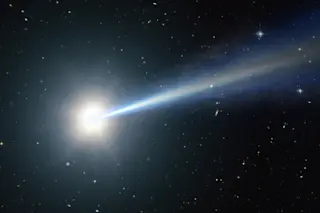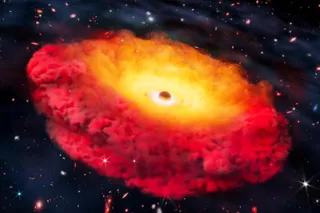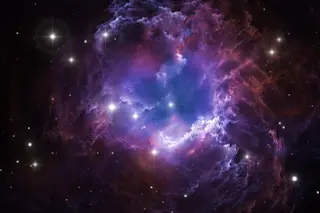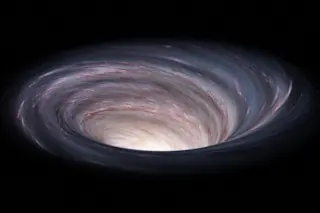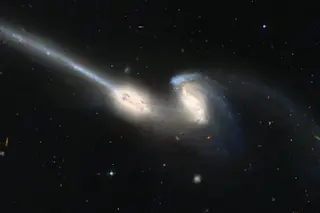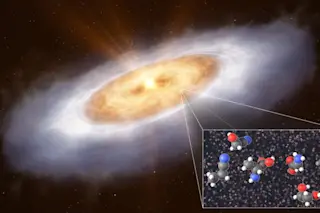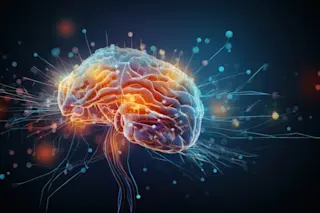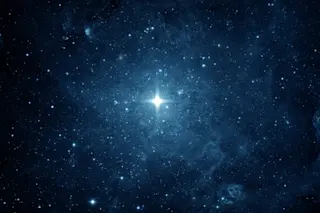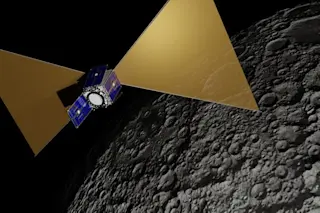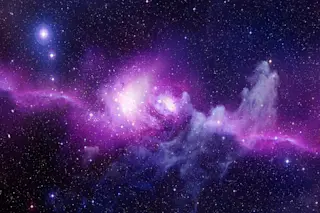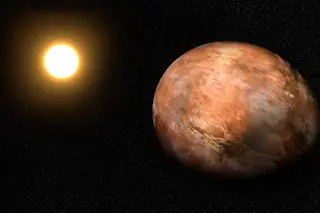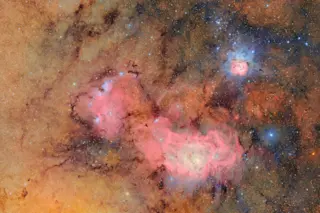Dust partially obscures a distant quasar in this artist's illustration. (Credit: NASA/ESA/G.Bacon, STScI) With the help of two extremely bright quasars located more than 7 billion light-years away, researchers recently bolstered the case for quantum entanglement — a phenomenon Einstein described as "spooky action at a distance" — by eliminating one classical alternative: The freedom-of-choice loophole.
Of the many mindboggling facets of quantum mechanics, one of the most intriguing is the idea of quantum entanglement. This occurs when two particles are inextricably linked together no matter their separation from one another. Although these entangled particles are not physically connected, they can still able to share information with each other instantaneously — seemingly breaking one of the most hard-and-fast rules of physics: No information can be transmitted faster than the speed of light. As far-out as the idea seems, quantum entanglement has been proven time and time again over the years. ...


